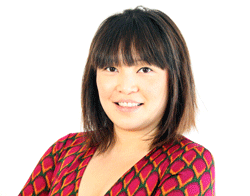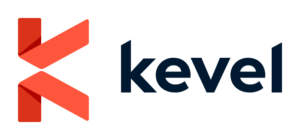Louisa Wong Says Aegis Will Take Strong Data Approach To Automated Buying
by Ciaran O'Kane on 17th Feb 2011 in News


Louisa Wong has spent most of her career working on the supply-side, but recently crossed the rubicon to take up a role at Aegis. The new position, Director of Media Platforms, will focus on ad trading strategies across the group. ExchangeWire recently spoke to Wong, and got a flavour of what the market can expect to see from Aegis in the coming months.
Can you give more detail on the Aegis exchange strategy?
LW: We are coming at it from a data perspective. How is the RIGHT data used in the context of campaign optimisation and how do we evolve our value proposition from being just an agency that is able to deliver against performance KPI’s. We want to progress our ideas in how we “unleash the power” of data to deliver insight and business intelligence. So in answer to your question, it’s not about Aegis having just an exchange strategy but how we as a Group are evolving our business to allow us to operate in this dynamic environment. Ad exchanges are an example of how the digital trading eco-system is evolving. It’s a revolution not specific to just display advertising, as we are seeing similar trends in mobile, video and outdoor advertising - and of course TV is also starting to go that way too.
Will exchange buying be spearheaded by a trading desk? Or will agencies within Aegis remain autonomous in terms of how they buy through the exchanges?
LW: As a UK group, we have collectively agreed that ad exchange activity will be traded via iProspect’s Trading Desk, although this won’t necessarily be the model in other markets. Your question suggests that the role of the media planner is defunct, but this is absolutely not the case. On the contrary, we are up-skilling our teams across the group to manage this change. Skill sets required will be a combination of being able to plan campaigns, audiences and understand data segments across our Trading Desk. In addition, we are establishing an optimisation team and have hired a Head of Optimisation and Planning. Commercially and culturally we are evolving too.
How does your offering differentiate from those currently being pushed by rivals Publics and WPP?
LW: I don’t necessarily see Publicis or WPP as rivals. I believe we’re all operating in this space to achieve the same goal. Some might argue there are clear different approaches, but I'd say they are just iterations of the same ambition. That said, I believe our approach to data is one of our key differentiators. Let’s leave it at that, as I don't want to divulge the entire recipe to our “secret sauce”. We leave that for clients.
How important is building a robust data infrastructure on top of the DSP bidder? Is this something Aegis wanted to address before committing significant budgets to exchange buying?
LW: Let’s just say this, one can exist without the other but you require both to unlock the real value proposition.
Do you think agencies are have the right culture and technical resource to build proprietary technology? Should they, as Judy Shapiro pointed out in a recent AdAge post, stop pretending their tech companies, and focus on the service layer?
LW: Culture is evolutionary, and as agencies we have to ensure our business follows at the appropriate pace. In the context of data and technology, our key expertise remains in the way our people leverage the right technology partners. However we recognise the strong part that technology plays and will continue to play in our role as an agency. Whether it is to partner or build to empower us in our core businesses.
If technology and data are to be the key drivers of the agency business, what kind of top-down approach should they be taking in terms of re-skilling and technology innovation?
LW: This is an evolutionary process, and as such is not prescriptive to all markets. We pride ourselves in tailoring and delivering custom solutions based on client requirements in individual markets. Basically we would do what’s right for the client, rather than be dictatorial.
Do you think there is lot of confusion around what constitutes actionable data? How is Aegis, for instance, defining data in terms of targeting?
LW: It’s too early to define this question. I think we are still working out as an industry the quality, validity and value of various data sources that have been brought to the table. Re-targeting and ad serving targeting tools are the established common currency in this realm. That said we are exploring partnerships where we can begin to understand what is appropriate for our clients.
Having worked on the supply-side for so long, how has the new role at Aegis informed your opinion on the UK display market as a whole?
LW: Doubtless, some would call me a "black sheep" for making the moving. But most have been supportive given that I have been so vocal on the supply-side. Not much has changed though: I am still a strong advocate for the role of data in advertising. Given my experience I believe I can work with vendors in the eco-system in a balanced way. I'm hoping my new role will allow me to establish true partnerships with media owners, and help them unleash the power of data. I would like to hear the industry talk more about understanding the user journey, deciphering attribution and less about the last click or view. This approach will ultimately allow us to unlock the power of digital advertising.
Given the growing budgets going through the DSPs and the automated channel, do you think the ad network model will struggle? Can they, as suggested in a recent ExchangeWire post, compete directly with agencies by owning the client direct relationship?
LW: I couldn’t possibly comment but there’s room for everyone at this party. The question should really be who will still be standing in 18 months time.
AgencyDataDisplayExchangeProgrammaticTargetingTrading








Follow ExchangeWire